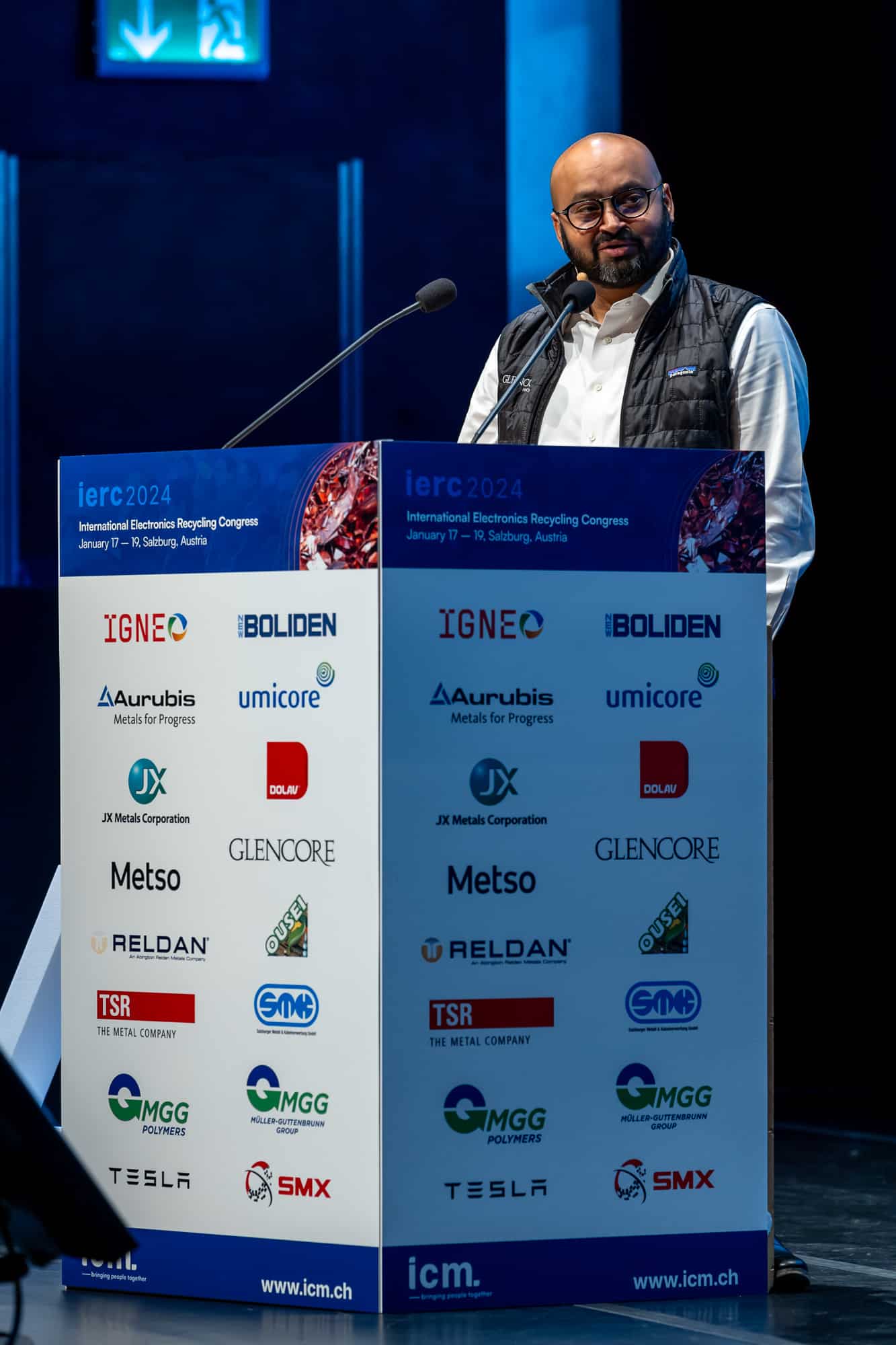
More legislation and stronger partnerships between electronics producers and recyclers are crucial to speed up circularity and feed the world’s growing appetite for critical raw materials, observes Kunal Sinha, global head of recycling at Glencore.
Europe is leading when it comes to circularity, with legislation proving to be ‘the big booster’, Sinha told the latest International Electronics Recycling Congress in Salzburg, Austria. ‘The EU currently recycles 43% of its electronics, and that’s thanks to regulation, for example the WEEE Directive, being a really big driver. But if you look at the USA, where many states still lack proper regulation for e-scrap, the recycling rate is only 16%.’
Massive volumesAccording to Sinha, this means more than 50 million tonnes of electronics is not processed and this total is increasing rapidly year-on-year. ‘That’s a huge waste of valuable raw materials and it’s growing,’ he said. ‘If we don’t manage to tackle and recover these, we will be sitting on even more massive volumes of e-waste not being collected, recycled or reused in the near future.’
We’re in this togetherAccording to Glencore’s head of recycling it’s time ‘to get to work’ and together make sure we get a better grip on electronics and the critical raw materials within them. That means stronger partnerships between OEMs and recyclers to get to 100% circularity. ‘OEMs need to align better with EPR and there should be more focus on eco-design,’ he argued. ‘Everything and every step in the chain should support repair, reuse and recycling.’ Sinha also said that OEMs, recyclers, smelters and refiners needed to work hand-in-hand, under free market principles, for circularity to scale and work.’
Lessons learnedHe added that both the WEEE Directive and the Battery Directive offered opportunities to learn from and apply to each other. ‘Lessons from Europe need to be implemented in other parts of the world, especially as it relates to collections.’ |
Source: Recycling International | February 2024